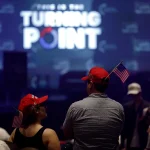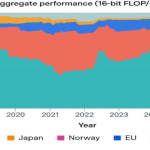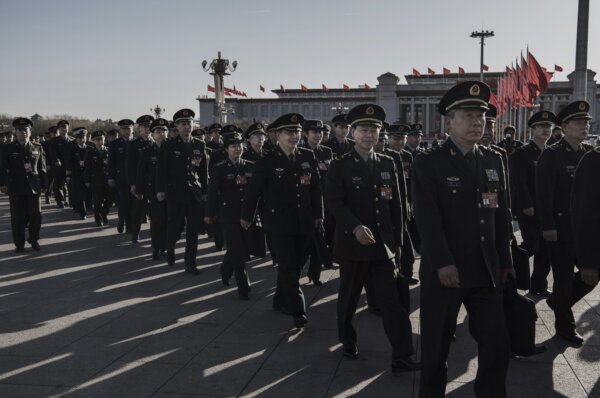U.S. President Donald Trump said on May 28 that he is giving Russian President Vladimir Putin two weeks to demonstrate a genuine commitment to ending the war in Ukraine, warning that failure to do so could result in tougher action, including sanctions.
“I’m very disappointed,” Trump told reporters in the Oval Office on May 28, referring to Russia’s latest drone and missile strikes on Ukrainian cities, which he condemned for killing civilians during ongoing talks to put an end to the long-running war.
Asked by a reporter whether he still believes that Putin “actually wants to end the war,” Trump said he remains uncertain whether the Russian leader is negotiating in good faith—and pledged a tougher U.S. response if it turns out that Putin is insincere.
“I can’t tell you that, but I‘ll let you know in about two weeks,” Trump said. “Within two weeks we’re going to find out … whether or not he’s tapping us along or not. And if he is, we’ll respond a little bit differently.”
Trump said his special envoy, Steve Witkoff, is leading negotiations with the Kremlin “very strongly” and suggested that Russia appears interested in reaching an agreement.
“[Russia seems] to want to do something, but until the document is signed, I can’t tell you, nobody can,” Trump said.
Despite his growing frustration over Russia’s escalating attacks on Ukraine amid U.S.-brokered negotiations, Trump told reporters that he has held off on imposing new sanctions on Moscow because he believes that the warring sides are close to a cease-fire.
“I don’t want to screw it up,” he said, noting that sanctions could derail the talks.
Trump said he has been “a lot tougher” on Russia than other U.S. presidents have been, but that you have to know when to use sanctions most effectively.
“This isn’t my war—this is [former U.S. President Joe] Biden’s war, [Ukrainian President Volodymyr] Zelenskyy’s war, and Putin’s war, this isn’t Trump’s war,” he said, noting that the only reason that he is involved is to end the bloodshed.
Following more than two hours of talks with Trump last week, Putin told reporters that he agreed to begin drafting a memorandum outlining a potential framework for a peace deal, including a timeline for a cease-fire.
Russian Foreign Minister Sergey Lavrov confirmed on May 28 that Moscow is finalizing the memorandum and plans to present it during a second round of direct negotiations with Ukraine, proposed for next week in Turkey.
“The Russian side, as agreed, promptly developed a corresponding memorandum, which sets out our position on all aspects of reliably overcoming the root causes of the crisis [with Ukraine],“ Lavrov told reporters. ”Our delegation, headed by [Russian presidential aide] Vladimir Medinsky, is ready to present this memorandum to the Ukrainian delegation and provide the necessary explanations during the second round of resumed direct negotiations in Istanbul next Monday, June 2.”
There was no immediate response from Ukraine regarding Russia’s proposal. The first round of talks, held on May 16 in Turkey, marked the first direct contact between Russian and Ukrainian delegations since the war began in February 2022. That meeting yielded a prisoner exchange, but no progress on a broader cease-fire. Neither Putin nor Zelenskyy attended, with Kyiv sending a lower-level delegation after Zelenskyy’s request for a face-to-face meeting with Putin was rejected.
Kyiv and some of its Western allies have accused Moscow of using diplomacy as a stalling tactic while continuing to gain territory on the battlefield—an accusation the Kremlin denies. Russia has said that any peace deal must address what it calls the “root causes” of the conflict, including NATO’s eastward expansion and Western military support for Ukraine.
Moscow has long said that Ukraine’s joining NATO would pose an existential threat, effectively placing a Western military foothold at Russia’s border. Ukraine, in turn, has rejected Russia’s attempt to veto its future in the military alliance and has pressed the West for strong security guarantees that would deter future Russian attacks.











